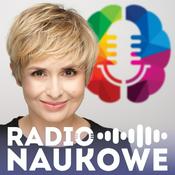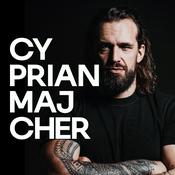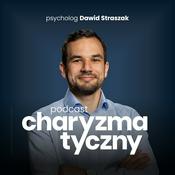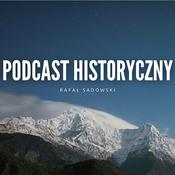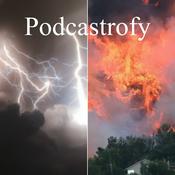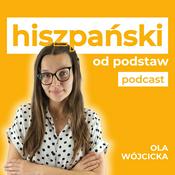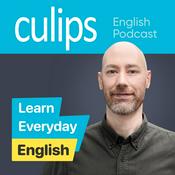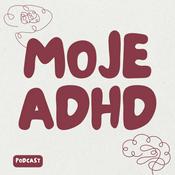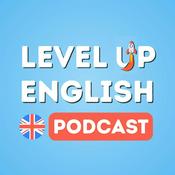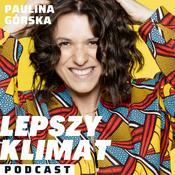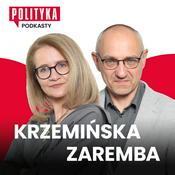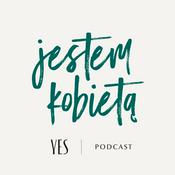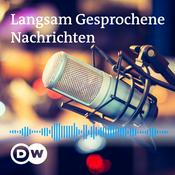53 odcinków

A hidden link between amino acid metabolism and peripheral neuropathy in diabetes
16.06.2023 | 39 min.
Peripheral neuropathy afflicts millions of diabetes patients around the world, causing sensations from tingling to pain to complete numbness. For our season finale, we discussed peripheral neuropathy with bioengineer Christian Metallo, whose recent research has uncovered how insulin-regulated metabolism of lipids and amino acids contributes to peripheral neuropathy. Dr. Metallo spoke with us about the inspiration for this research and explained his team’s key findings about the links between insulin, the amino acids serine and glycine, and peripheral neuropathy in diabetes patients.

The AI model that’s building novel proteins
24.05.2023 | 27 min.
Proteins, with their unique structures, have evolved over billions of years to perform a host of different functions essential to the processes that keep us alive. Using the same principles as artificial intelligence chatbots, scientists at Salesforce developed an AI language model called ProGen. Using large protein databases, ProGen was trained on the biological syntax of amino acid sequences, allowing it to design functional 3D protein structures. These proteins have useful properties that may be leveraged in healthcare and biosciences. In this episode, we talk with Dr. Nikhil Naik, Director of AI Research at Salesforce, leading the team of scientists behind ProGen. We discuss the inspiration for ProGen, the implications of AI-generated proteins, and the future of protein engineering in light of ever-evolving biotechnologies. Music credits: “Summer Lofi” and “Summer Winds” by Rukudzo.

Countering antibiotic resistance using engineered bacteria
03.05.2023 | 36 min.
Respiratory infections are a major cause of mortality worldwide and pose unique challenges for healthcare interventions due to the antibiotic-resistant nature of many respiratory pathogens. For patients that require ventilation, an additional complicating factor is a protective substance produced by bacteria known as a biofilm. Biofilms can result in chronic infections, preventing the body and antibiotics from clearing the bacteria away. In this episode, we talk with Dr. Maria Lluch-Senar, a biotechnologist working with engineered Mycoplasma (a type of bacteria) with the aim of leveraging it to treat disease. She shares with us why Mycoplasma is a candidate for these interventions, how her lab modifies the organism, and the process through which these bacteria will help us more effectively treat other bacterial infections. Music featured in this episode includes excerpts from “Elevator Pitch” and “What’s the Angle” by Shane Ivers.

Healing Wounds Faster with the Body’s Own Motion
12.04.2023 | 29 min.
Have you ever had a wound that took a long time to heal? What if the bandage on your next wound could heal you faster by harnessing the power of your movement? Dr. Zong-Hong Lin and Dr. Snigdha Barman used their bioengineering expertise to create such a system. Their dressing uses embedded piezoelectric devices to convert the body’s motion into electricity, which powers multiple functions designed to overcome specific challenges of wound healing in clinical settings. The dressing, which can be worn continuously for several days, releases hydrogen peroxide to fight bacterial infection while using electrical stimulation to promote healing via cell proliferation, migration, and angiogenesis. We talked with Dr. Lin and Dr. Barman about the motivation for their work, the obstacles they overcame in developing their dressing, and the promises and challenges in its future application. This episode contains musical excerpts from “Drops of God” and “Dark Matter” by Rukudzo Kanyemba.

Fighting Cancer with a Cell-Based Vaccine
23.03.2023 | 43 min.
Vaccines have revolutionized modern medicine, preventing, and even eradicating devastating diseases worldwide. Vaccines leveraging emerging technologies in cellular engineering may lead a revolution in medicine again, starting in brain tumors. In this episode, we hear from Dr. Khalid Shah, a researcher at the forefront of such developments. Dr. Shah and his team are engineering brain tumor cells to create a treatment with direct tumor-killing effects, addressing incomplete tumor margins during excisional surgery. In addition to this direct effect, the treatment also stimulates the immune system to generate long-lasting anti-tumor activity, preventing future recurrence of the same tumor. Music Credits: “Shaolin,” “Inqusitive,” “Fire,” and “Kutapira” by Rukudzo.
Więcej Edukacja podcastów
Trendy w podcaście Edukacja
O Science Rehashed
Słuchaj Science Rehashed, Radio Naukowe i wielu innych podcastów z całego świata dzięki aplikacji radio.pl
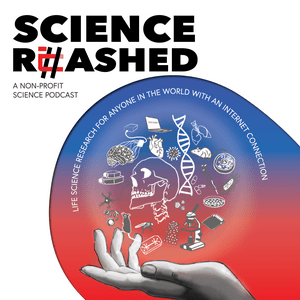
Uzyskaj bezpłatną aplikację radio.pl
- Stacje i podcasty do zakładek
- Strumieniuj przez Wi-Fi lub Bluetooth
- Obsługuje Carplay & Android Auto
- Jeszcze więcej funkcjonalności
Uzyskaj bezpłatną aplikację radio.pl
- Stacje i podcasty do zakładek
- Strumieniuj przez Wi-Fi lub Bluetooth
- Obsługuje Carplay & Android Auto
- Jeszcze więcej funkcjonalności


Science Rehashed
pobierz aplikację,
zacznij słuchać.
